Guinea Module 1: Engaging Communities to Prevent Disease Outbreaks
“Stay engaged,” read the signs on buckets of chlorine solution outside health centers around Guinea. “Ebola can come back.”
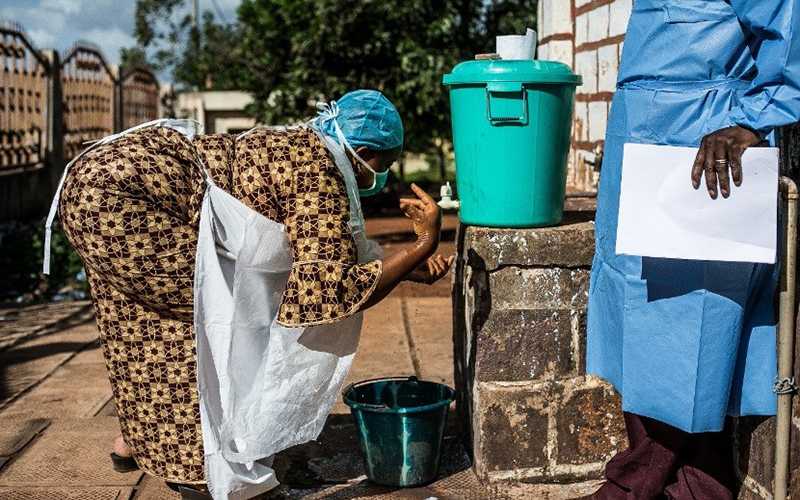
A health worker washes her hands outside a training on infection prevention and control practices.
In fact, it already had. Though Guinea’s epidemic was declared over in December 2015, new cases of Ebola surfaced in March and April of 2016, causing another eight deaths. The outbreak was swiftly stamped out, thanks to stronger, faster, and more nimble disease detection and emergency response. The country is forging down the road to recovery, but caution is the watchword, and cooperation is key.
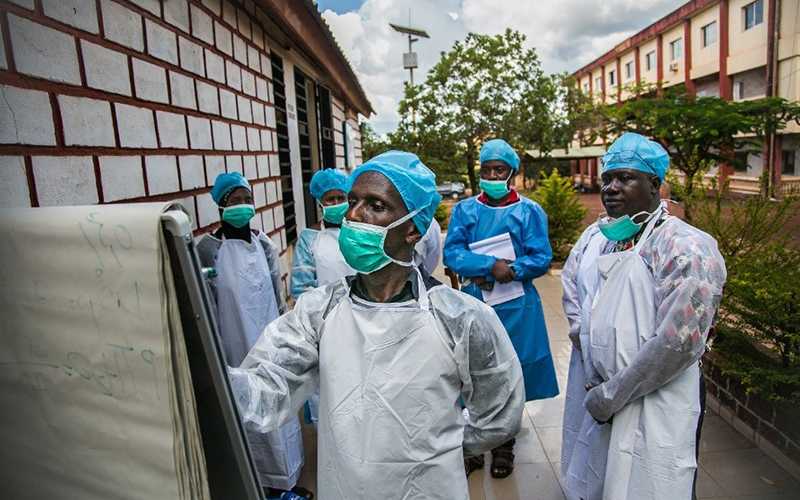
Health workers being trained on infection prevention and control practices
“We have to consider that there are other illnesses that can become epidemics,” said Dr. Facinet Yattara, Surveillance Coordinator of the National Health Security Agency in Guinea’s Ministry of Health. And because Ebola can come back, people at all levels of the health system must remain vigilant. “Surveillance is protection.”
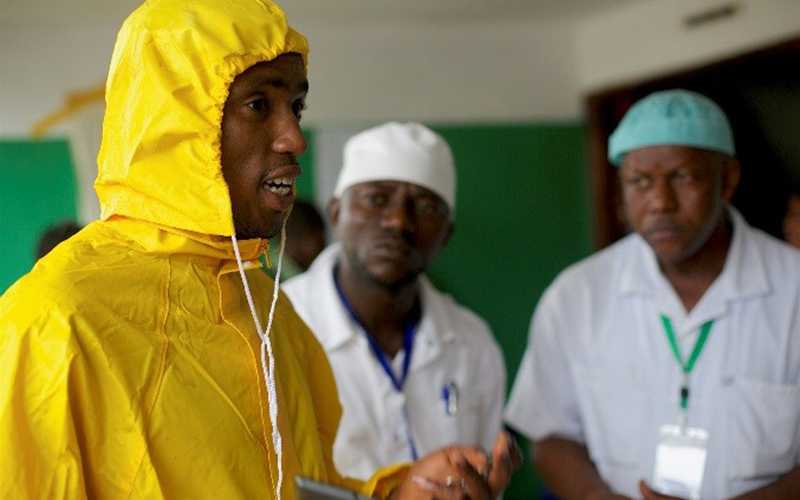
Dressed head to toe in yellow rainwear, an ACS named N’Famoussa Camara set out in the pouring rain last June to visit households in Matam, an area in the prefecture of Conakry.
Epi-détecte, a five-year global health security project, aims to strengthen surveillance in the country. “Strengthening surveillance is one of the government’s top priorities,” said Dr. Boubacar Ibrahima Diallo, Chief of Party for Epi-détecte. “They know that communities can play an important role, and they want to equip them to detect diseases before they can spread.”
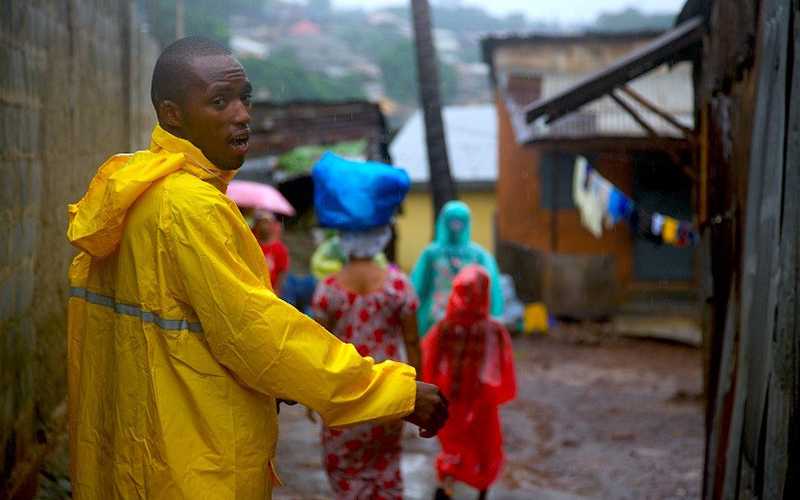
ACSs like Mr. Camara are supervised by staff in local health centers, and workers in two local heath districts have been provided with mobile phone credits that enable them to quickly contact their supervising health centers if they find a potential case or disease event.
In reality, it all starts with an agent communautaire de santé, or ACS—a person who serves as the surveillance system’s eyes and ears on the ground to prevent disease outbreaks.
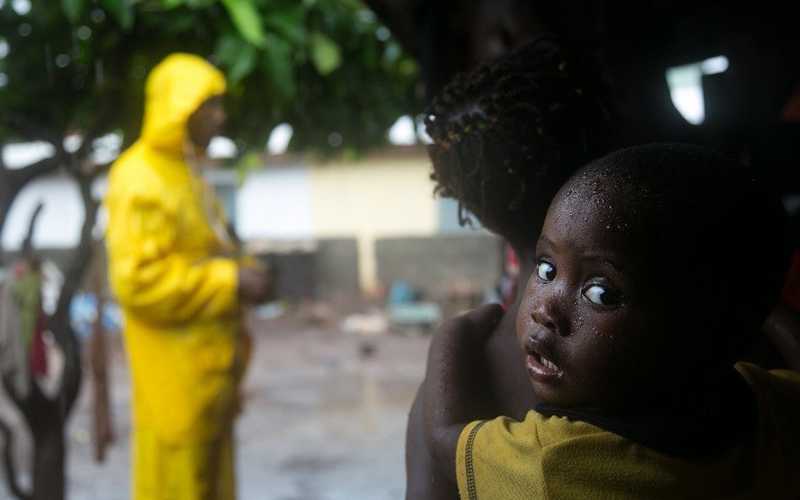
N’Famoussa Camara talks diseases.
“The first thing is to say hi to the family,” he said, flashing a grin. “Then I explain why I’m there”—to talk about the different diseases, the symptoms to watch out for, and what to do should a family member fall ill.
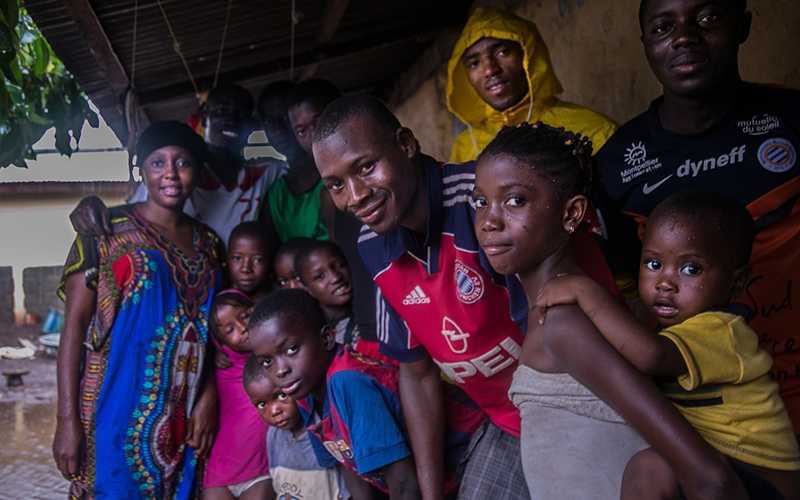
Mr. Camara and a family in his community
Mr. Camara notes that the work can be hard, particularly in the rainy season. But the trust people in his community have in him makes all the difference. “Because I am from the community, the people here, they know me, they trust me.”
Part of the Epi-détecte project includes helping Guinea’s government take up a single, national platform for surveillance and health information. Having electronic data available enables local and national health officials to analyze and respond to potential outbreaks in near-real time, protecting people in Guinea and around the world.
- Page last reviewed: August 6, 2017
- Page last updated: August 6, 2017
- Content source:
Global Health
Notice: Linking to a non-federal site does not constitute an endorsement by HHS, CDC or any of its employees of the sponsors or the information and products presented on the site.


 ShareCompartir
ShareCompartir